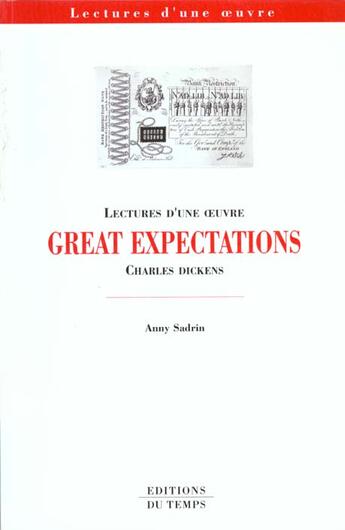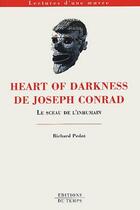Résumé:
This is an illuminating critical study of one of Dickens's best known novels.
It focuses on the historical background of criminality and gentility, on the ambiguity of the position of Pip, the narrator-hero, and the theatricality of Miss Havisham. Great Expectations is seen as Dickens's most... Voir plus
This is an illuminating critical study of one of Dickens's best known novels.
It focuses on the historical background of criminality and gentility, on the ambiguity of the position of Pip, the narrator-hero, and the theatricality of Miss Havisham. Great Expectations is seen as Dickens's most self-parodic novel, a novel on novel writing. Anny Sadrin analyses Dickens's processes of composition, casts new light on the cancelled ending and on the possible reasons why lie agreed to rewrite his conclusion and provides fresh evidence for dating the fictitious events precisely.
She explores the evolution of the idea of the gentleman in the novel and of the changing attitudes to convicts and to Australia from the Regency period, when the novel is set, to 1860, when the novel is supposed to bc narrated and indeed when it was actually written. Central chapters focus on the status of Pip as a would-be gentleman, a modern Oedipus clinging to old-fashioned values and always searching for a fatherly protector, and above all as a Bildungsroman hero who believes lie belongs to a fairy-tale.
Dickens's strategy of first-person narration is fully discussed and a study of rhetoric and narrative voices reveals that much of the story is told through Pip rather than by him. The section conclude8 with a chapter devoted to the theatricality of Miss Havisham's seclusion and melancholia and to an exploration of major themes in the novel, including narcissism, fetichism, cannibalism, and miscreativity.
The book ends with a comprehensive survey of criticism of Great Expectations from its first publication and a bibliography.
Donner votre avis
















